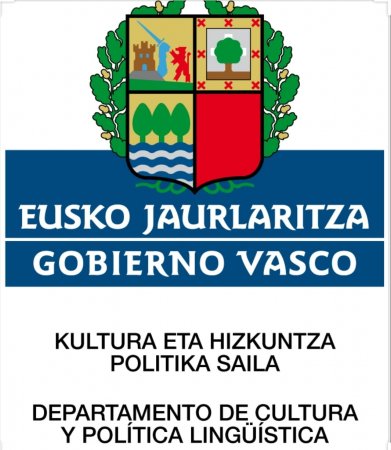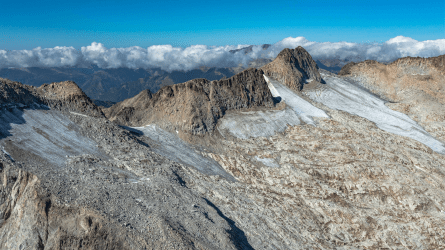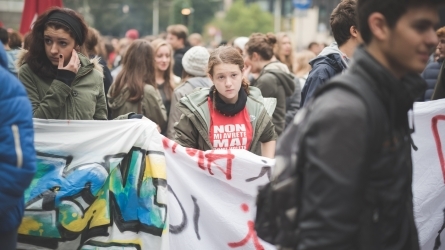
Climate Crisis and the Rise of Authoritarian Populist Movements in Europe
Description
Authoritarian populist movements are emerging in the global context (e.g. in the US, Russia, India, Brazil, Argentina), and Europe (e.g. in Holland, Finland, France, Hungary). This phenomenon shares several characteristics at an international level, partly
derived from the current phase of exhaustion of a globalized economic model, which in turn entails a concatenation of cyclical and structural crises (“poly-crises”) that generate high levels of insecurity and uncertainty in society. At the same time, the rise of
populist movements is revealing the weaknesses of the political model of representative democracy.
Populist movements respond and adapt to national contexts. Although there are different analyses of the causes of the rise of authoritarian populism, the effects that this entails on the climate crisis are not usually debated and analysed in depth. The objective of this Summer Course is to shed light on the possible effects of the rise of authoritarian populism in Europe and internationally on the fight against climate change.
To do this, it is necessary to make a diagnosis of the populist discourses on sustainable development, the geopolitical situation, the processes (in the Basque Country and the Spanish State) and analyse several key aspects, such as the role of
(mis)information, environmental movements, and the evolution of environmental conflicts.
Objectives
Analyse the rise of the populist movement in Europe since the 1980s in its international economic and political context (rise of neoliberalism: 1980-90; globalisation (1990-2008); polycrisis (2008-).
To analyse the positioning of populist movements in Europe in the face of the challenges of the global environmental crisis with special emphasis on climate change.
To analyse the evolution of the discourse and social and political influence of populism on the challenge of sustainable development since the Rio Summit (1992).
To analyse the similarities and differences in the discourses of the different versions within and outside Europe on the links between socio-economic development and the environment.
To analyse the social influence that the recent evolution and current situation of the discourse on sustainable development by populist movements in Europe may have in the Basque Country.
Activity directed to
- All public
- University student
- Students not from university
- Teachers
- Professionals
Organised by
In collaboration with
Program
01-07-2024
Registro / Erregistroa
Presentation by the Director of the activity
- Unai Pascual | Basque Centre for Climate Change (BC3) - Ikerbasque Professor
- Eguzki Urteaga | UPV/EHU - Profesor de Sociología
“Conferencia Inaugural“
Why do populists challenge European climate action and what can we do about it?
- Robert Huber | University of Salzburg - Professor of Political Science Methods at the Department of Political Science
“El populismo en el contexto geopolítico internacional actual“
- Asier Blas | UPV/EHU - Profesor
Break
“Ziurgabetasunaren gizartea eta populismoaren hazkundea“
- Eguzki Urteaga | UPV/EHU - Profesor de Sociología
“Cambio Climático: Hay cosas que no se pueden negar“
- María José Sanz Sánchez | Basque Centre for Climate Change (BC3) - Directora BC3 (Participation by zoom)
Receso comida
“¿Son antagónicos el ecologismo y el autoritarismo? Una mirada histórica para hacer frente al futuro.“
- Iñaki Barcena Hinojal | UPV/EHU - Profesor
“La crisis eco-social y auge del populismo: El caso de España“
- Yayo Herrero López | Consultora, investigadora y profesora en los ámbitos de la ecología política, los ecofeminismos y la educación para la sostenibilidad de la vida (Participation by zoom)
Break
Round table: “La crisis climática ante el fenómeno del populismo en Europa”. Con la participación de los ponentes“
- Unai Pascual | Basque Centre for Climate Change (BC3) - Ikerbasque Professor (Moderator)
- Asier Blas | UPV/EHU - Profesor
- Eguzki Urteaga | UPV/EHU - Profesor de Sociología
- Iñaki Barcena Hinojal | UPV/EHU - Profesor
- Yayo Herrero López | Consultora, investigadora y profesora en los ámbitos de la ecología política, los ecofeminismos y la educación para la sostenibilidad de la vida
Closing session
- Unai Pascual | Basque Centre for Climate Change (BC3 - Ikerbasque Professor
- Eguzki Urteaga | UPV/EHU - Profesor de Sociología
Directors

Unai Pascual
Basque Centre for Climate Change (BC3)
Unai Pascual (BC3) es profesor del Centro de Investigación Ikerbasque y tiene más de 20 años de experiencia en el campo de la economía ecologista, adquiriendo ciencias sociales y naturales para entender sistemas socioculturales complejos. Es miembro del Panel Multidiscipline Expert de los Servicios de Biodiversidad y Ecosociología (IPBES). Sus principales investigaciones se centran en la interacción entre el cambio global del medio ambiente y la economía, con especial atención al papel evolutivo de las instituciones, los mercados y la gobernanza ambiental a lo largo de las balanzas. Ha realizado proyectos de investigación en países de todo el mundo como varios de Europa, EEUU, México, Perú, Bolivia, Colombia, India, Etiopía y Malawi. Pascual ha trabajado como profesor y profesor principal en varias universidades europeas (Cambridge, Manchester, York, Barcelona, Bilbao) y Latinoamérica (Argentina, República Dominicana, México, Colombia).

Eguzki Urteaga
UPV/EHU
Eguzki Urteaga est Professeur de Sociologie à l’Université du Pays Basque (UPV-EHU) et Chercheur associé au Social and Business Research Laboratory (SBRlab), centre de recherche de l’Université Rovira i Virgili. Ce Docteur et Licencié en Sociologie de l’Université Victor Segalen Bordeaux 2 et Licencié en Histoire mention Géographie de l’Université de Pau et des Pays de l’Adour est l’auteur de 34 livres, dont La Communauté Pays Basque: l’institutionnalisation du territoire (2017), La nouvelle politique linguistique au Pays Basque (2019) ou La politique culturelle au Pays Basque (2021) et de plus de 200 articles universitaires en Europe et en Amérique Latine. Il a également été professeur invité dans plusieurs Universités européennes (Bordeaux, Louvain, Coimbra, Paris et Rennes), tout en collaborant régulièrement avec plusieurs médias, dont Euskal Telebista, Deia, Berria et Gara.
Speakers

Iñaki Barcena Hinojal
Degree in Law (1980) and PhD in Social and Political Sciences (1990) and Full Professor (2102) at the University of the Basque Country. Visiting researcher-professor at the University of Bradford (1986), Hamburg Universität (1996), Nevada University (1999). He is a member of EKOPOL and Ekologistak Martxan
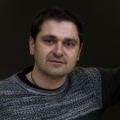
Asier Blas
He is a lecturer in the Department of Political Science and Administration of the UPV/EHU, of which he was Director from 2018-2022. He is a member of the Parte Hartuz research group and Director of Geopolitikaz. His main lines of research are models of democracy, policies of accommodation of national diversity and international politics.

Yayo Herrero López
Consultant, researcher and teacher in the fields of political ecology, ecofeminisms and education for the sustainability of life. She holds a PhD in Social Sciences and Politics, is a Social and Cultural Anthropologist, Social Educator and Agricultural Engineer. She is a member-worker of Garúa Sociedad Cooperativa and participates in the environmental movement.

Robert Huber
Robert A. Huber es profesor de Métodos de Ciencia Política en el Departamento de Ciencia Política de la Universidad de Salzburgo. Es doctor por la ETH de Zúrich (2018). El principal interés de investigación de Robert es explorar cómo la globalización presenta nuevos desafíos a la democracia liberal. Para ello, utiliza métodos de vanguardia para examinar la política comercial, la política climática y medioambiental, y el populismo. Robert ha publicado en varias revistas, entre ellas British Journal of Political Science, Comparative Political Studies, European Journal of Political Research y Political Analysis.

Unai Pascual
Basque Centre for Climate Change (BC3)
Unai Pascual (BC3) es profesor del Centro de Investigación Ikerbasque y tiene más de 20 años de experiencia en el campo de la economía ecologista, adquiriendo ciencias sociales y naturales para entender sistemas socioculturales complejos. Es miembro del Panel Multidiscipline Expert de los Servicios de Biodiversidad y Ecosociología (IPBES). Sus principales investigaciones se centran en la interacción entre el cambio global del medio ambiente y la economía, con especial atención al papel evolutivo de las instituciones, los mercados y la gobernanza ambiental a lo largo de las balanzas. Ha realizado proyectos de investigación en países de todo el mundo como varios de Europa, EEUU, México, Perú, Bolivia, Colombia, India, Etiopía y Malawi. Pascual ha trabajado como profesor y profesor principal en varias universidades europeas (Cambridge, Manchester, York, Barcelona, Bilbao) y Latinoamérica (Argentina, República Dominicana, México, Colombia).

Eguzki Urteaga
UPV/EHU
Eguzki Urteaga est Professeur de Sociologie à l’Université du Pays Basque (UPV-EHU) et Chercheur associé au Social and Business Research Laboratory (SBRlab), centre de recherche de l’Université Rovira i Virgili. Ce Docteur et Licencié en Sociologie de l’Université Victor Segalen Bordeaux 2 et Licencié en Histoire mention Géographie de l’Université de Pau et des Pays de l’Adour est l’auteur de 34 livres, dont La Communauté Pays Basque: l’institutionnalisation du territoire (2017), La nouvelle politique linguistique au Pays Basque (2019) ou La politique culturelle au Pays Basque (2021) et de plus de 200 articles universitaires en Europe et en Amérique Latine. Il a également été professeur invité dans plusieurs Universités européennes (Bordeaux, Louvain, Coimbra, Paris et Rennes), tout en collaborant régulièrement avec plusieurs médias, dont Euskal Telebista, Deia, Berria et Gara.
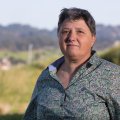
María José Sanz Sánchez
Ikerbasque Professor and BC3 Scientific Director since 2016, she is also a member of the Task Force Bureau on National Greenhouse Gas Inventories of the IPCC since July 2023. She graduated from the University of Valencia and did her post-doctoral studies at Arizona State University. Since then she has divided her time between research and research-policy interface work at national and international levels. On the academic side, she has published widely on air pollution dynamics and impacts in terrestrial ecosystems, climate change mitigation, environmental and climate change policy, GHG estimations and accounting in the LULUCF sector, and REDD+. She was in Senior Officer positions at the secretariat of the UNFCCC supporting climate change negotiations (2007-2011), and at FAO as Program Coordinator of the UNREDD Programme (2012-2015)
Registration fees
| Face-to-face | Until 31-05-2024 | Until 01-07-2024 |
|---|---|---|
| 25,00 EUR | 33,00 EUR | |
| - | 47,00 EUR | |
| - | 40,00 EUR | |
| - | 33,00 EUR |
| Live online | Until 31-05-2024 | Until 01-07-2024 |
|---|---|---|
| 25,00 EUR | 33,00 EUR | |
| - | 47,00 EUR | |
| - | 40,00 EUR | |
| - | 33,00 EUR |
Venue
C.I. Micaela Portilla- Salón de actos
c/ Justo Vélez de Elorriaga, 1, 01006 Vitoria-Gasteiz
Araba

